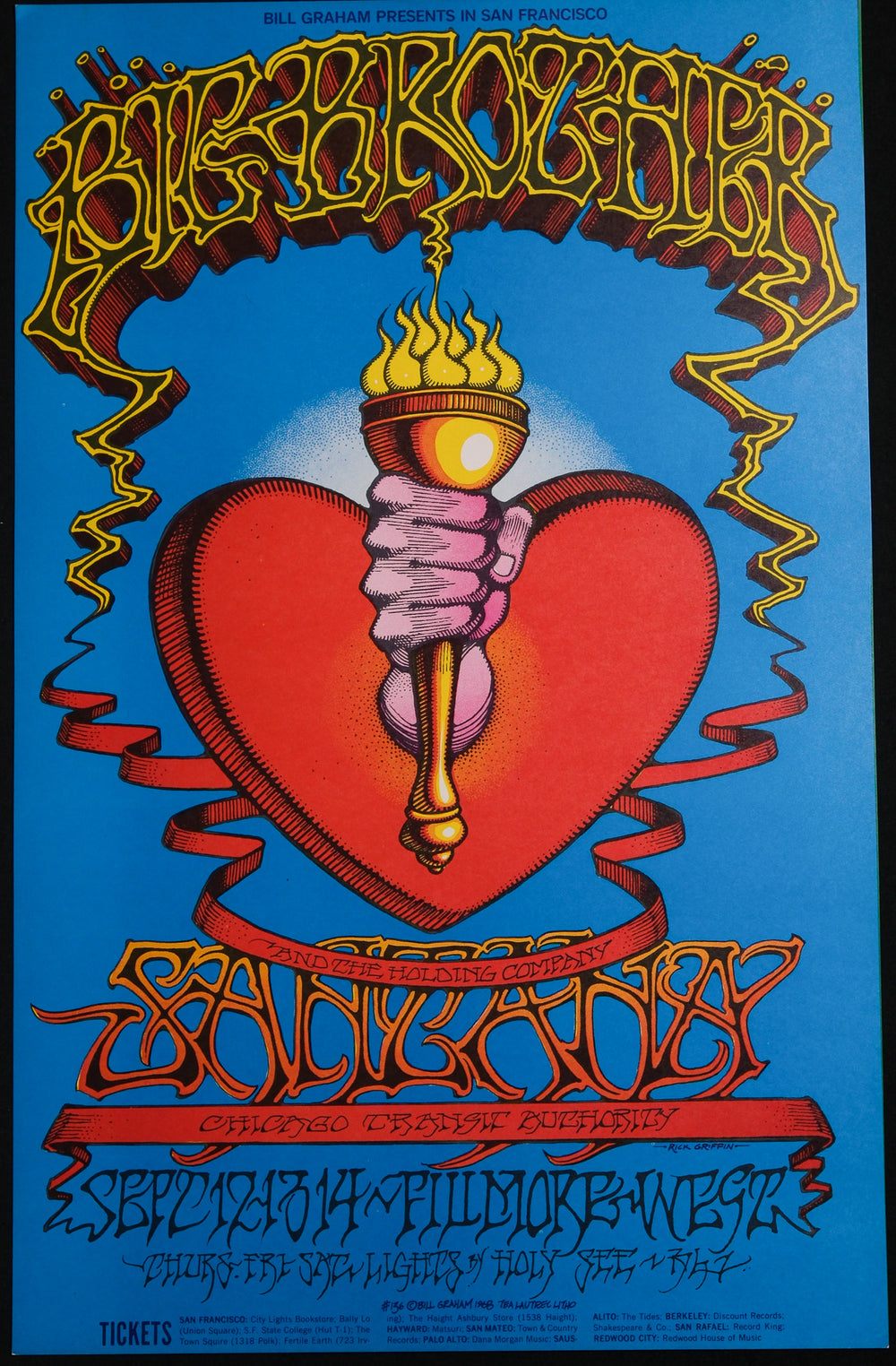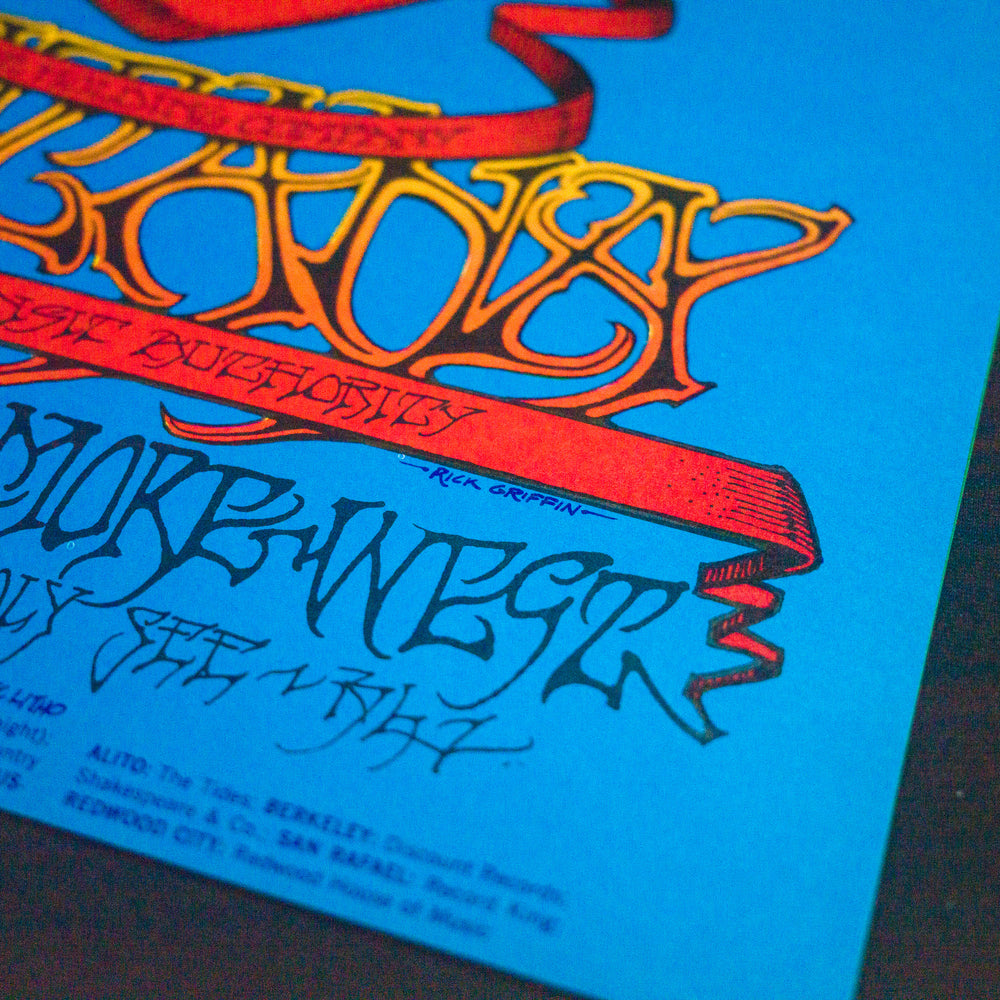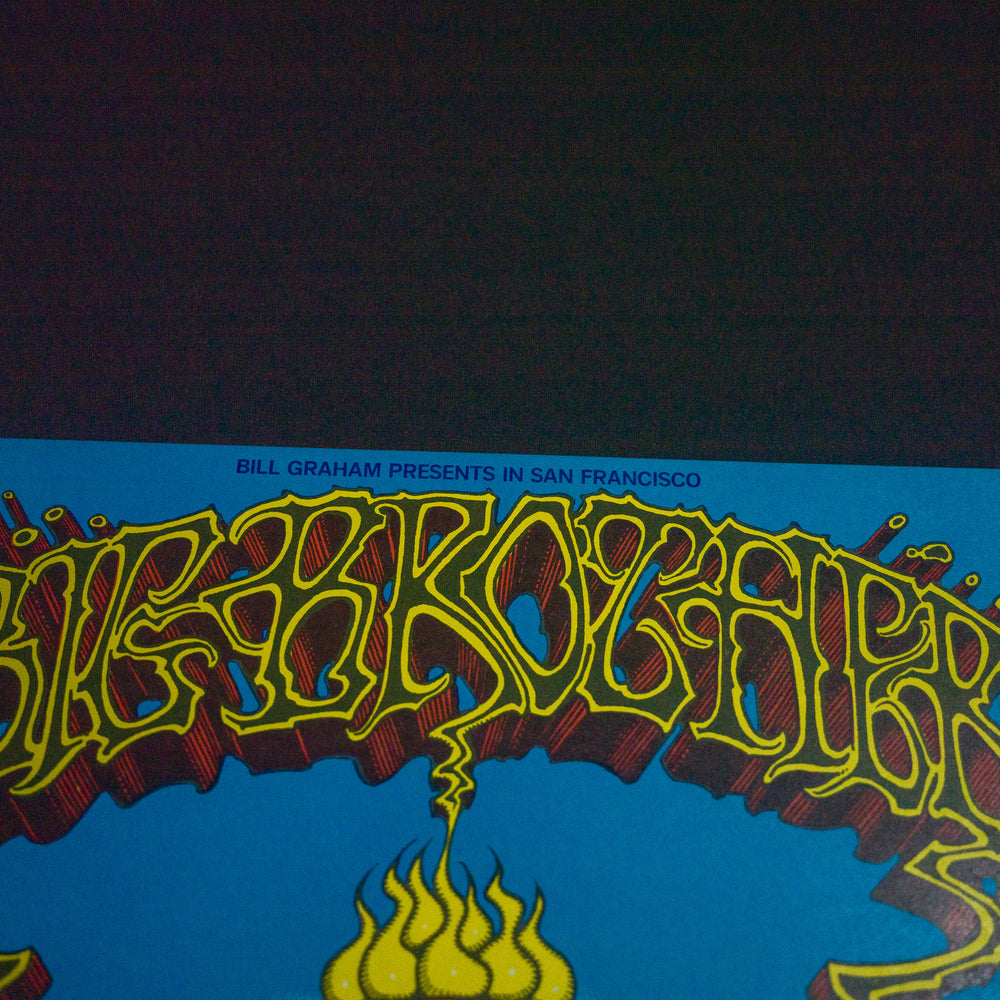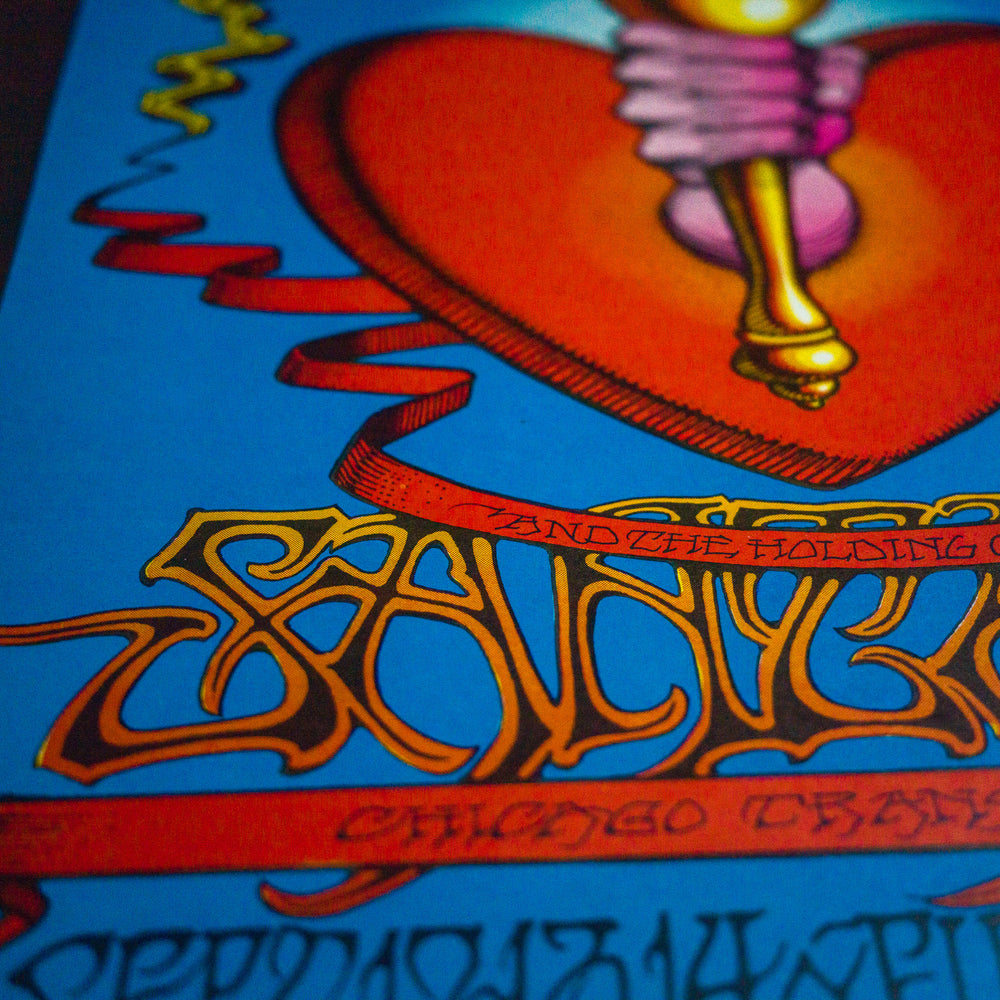Introduction
Embark on a journey through the vibrant musical landscape of the late 1960s with the Rick Griffin-designed poster for Janis Joplin's 1968 San Francisco concert. This poster stands as a vivid testament to the era's psychedelic art and iconic music, capturing the essence of a legendary performance. Join us as we explore the artistic brilliance of Rick Griffin, showcased in this poster that serves as a gateway to the timeless spirit of Janis Joplin's music.
Key Features
- Artist: Rick Griffin
- Year: 1968
- Edition Size: Op-1
- Numbering: NA
- Signature: NA
- Dimensions: Approximately 14"x22"
- Material: Original Screen Print
- Venue: Filmore West
The Artist: Rick Griffin
Rick Griffin was a prolific and influential American artist and illustrator known for his remarkable contributions to the world of psychedelic and counterculture art. Born on June 18, 1944, in Los Angeles, California, Griffin's journey as an artist began in the 1960s and quickly established him as a prominent figure in the art scene of that era.
Griffin's distinctive artistic style was characterized by its intricate and mesmerizing lettering, surreal and intricate illustrations, and a deep affinity for the psychedelic and spiritual movements. He drew inspiration from a variety of sources, including surfing, hot rod culture, and underground comix. His work often featured intricate and otherworldly imagery that reflected the psychedelic experiences of the time.
One of Griffin's most enduring legacies is his work in creating iconic rock concert posters. He designed posters for legendary bands and artists like the Grateful Dead, Jimi Hendrix, and Jefferson Airplane, among others. These posters not only served as promotional material but also became collectible pieces of art, capturing the spirit of the music and countercultural movements of the 1960s and 1970s.
The Band: Janis Joplin
Canned Heat is a legendary American blues rock band that emerged during the 1960s and made a profound impact on the music scene of the era. Formed in Los Angeles in 1965, the band's lineup consisted of talented musicians who shared a passion for blues music and a desire to introduce it to a new generation. Canned Heat was known for their authentic and energetic blues performances, characterized by powerful vocals, harmonica-driven melodies, and a rhythm section that grooved with a relentless boogie beat.
One of Canned Heat's most iconic moments came during their performance at the Woodstock Festival in 1969, where they delivered a blistering rendition of "Going Up the Country." The song became synonymous with the counterculture movement and Woodstock itself. Canned Heat's fusion of traditional blues with a contemporary rock sound resonated with audiences worldwide, earning them a dedicated following.
Throughout their career, Canned Heat released numerous albums and singles, with hits like "On the Road Again" and "Let's Work Together" becoming classics of blues and rock music. Despite lineup changes and challenges, the band's enduring legacy continues to influence and inspire blues enthusiasts and rock aficionados, solidifying their place in the annals of music history.
The Venue: The Fillmore West
The Fillmore West was a historic music venue located in San Francisco, California. It was one of the most iconic and influential concert halls during the heyday of the 1960s counterculture and the psychedelic rock scene. Here are some key highlights about the Fillmore West:
-
Legendary Venue: The Fillmore West was the West Coast counterpart to the famous Fillmore Auditorium, both of which were owned and operated by concert promoter Bill Graham. These venues played a pivotal role in the music and cultural revolution of the 1960s.
-
Musical Icon: Bill Graham, known for his passion and commitment to live music, transformed the Fillmore West into a premier venue for rock concerts. The venue hosted a wide array of legendary artists, including The Grateful Dead, Jimi Hendrix, Janis Joplin, Jefferson Airplane, and many others.
-
Eclectic Lineups: One of the hallmarks of the Fillmore West was its diverse and eclectic lineups. Bill Graham was known for mixing genres and showcasing both emerging and established artists. The venue was a platform for experimental and avant-garde music, helping to shape the San Francisco Sound.
-
Intimate Setting: The Fillmore West had a capacity of around 2,500, making it a relatively intimate venue compared to larger arenas. This allowed for a close connection between the performers and the audience, creating a unique concert experience.
-
Iconic Posters: The Fillmore West, like its sister venue, featured distinctive and artistic concert posters. Artists such as Wes Wilson and Rick Griffin created psychedelic and visually stunning posters that became collectible pieces of art in their own right.
-
End of an Era: Unfortunately, the Fillmore West, like many iconic venues of the 1960s, closed its doors in 1971. The music scene had evolved, and financial pressures played a role in its closure. However, the legacy of the Fillmore West lives on in the memories of those who attended its legendary concerts and through the music that was performed on its stage.




